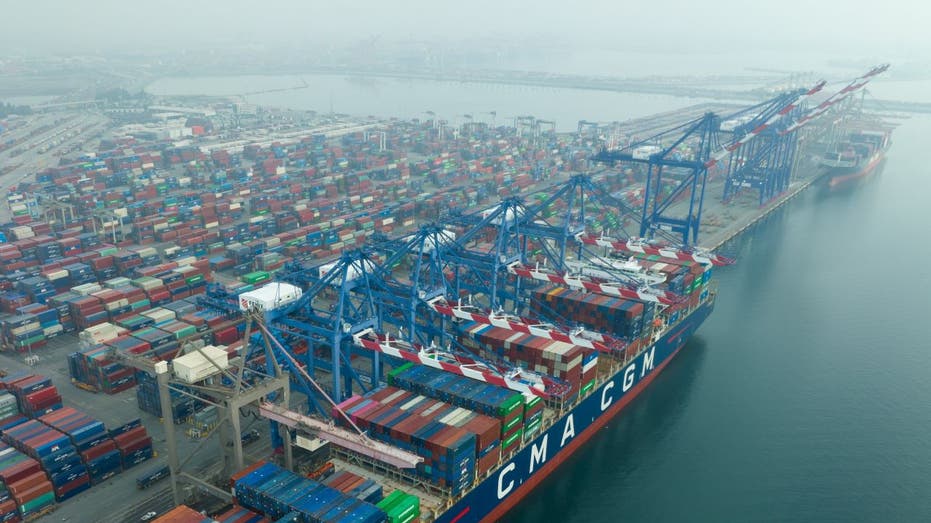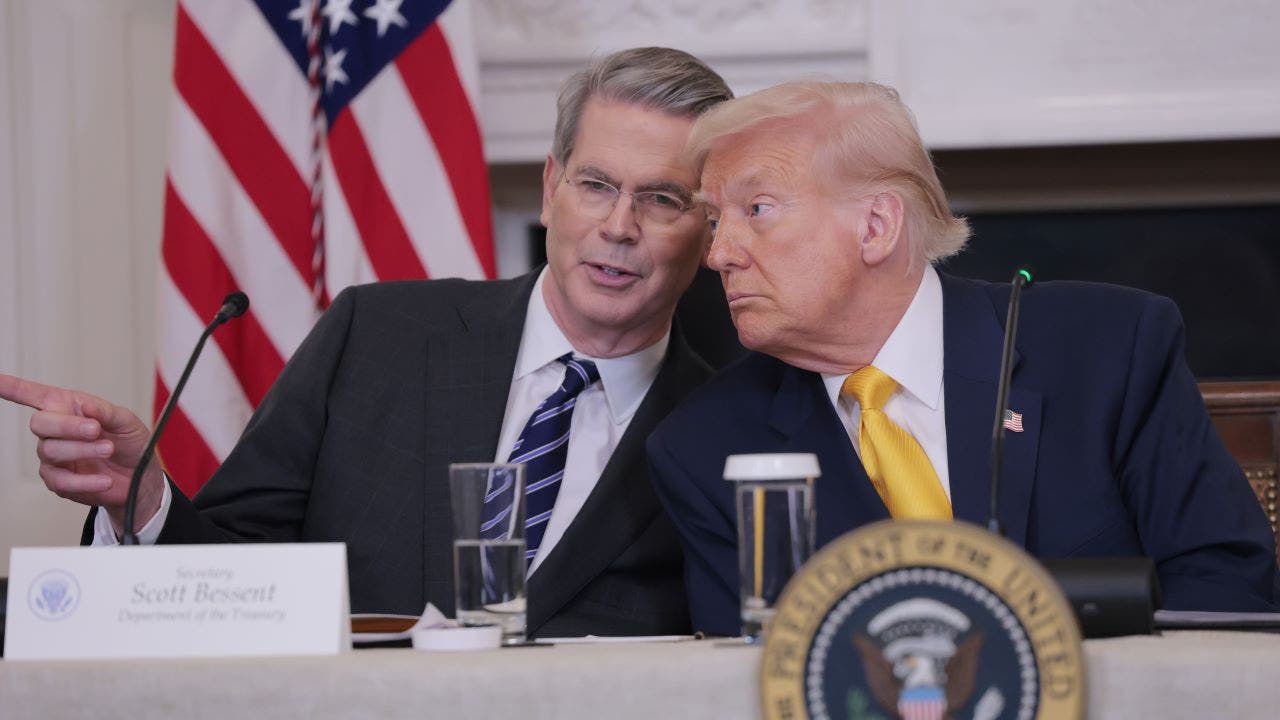A key official in the Trump administration’s economic team is touting the latest inflation data as showing that a tariff-induced rise in consumer prices is yet to materialize and seems unlikely to do so in the months ahead.
The Bureau of Labor Statistics on Tuesday released the consumer price index (CPI) data for July, which showed headline CPI rose 0.2% on a monthly basis and is up 2.7% from a year ago, with the annual figure cooler than the 2.8% estimate of economists polled by LSEG.
Core CPI, which excludes volatile energy and food costs, was up 0.3% from a month ago and 3.1% from last year – slightly hotter than the 3% expected by the LSEG poll.
Joe Lavorgna, counselor to Treasury Secretary Scott Bessent, spoke with FOX Business following the release of the economic data and said the lack of a clear tariff impact on inflation shows that “people need to reevaluate the economic model which they have completely missed.”
“There’s just no evidence that there’s really any tariff effect,” Lavorgna said. “In fact, you can go one level deeper and look at automobiles, which is the most tariff-sensitive product, given the materials and components are sourced all over the place. What you saw is actually a 1.3% decline if you go back to when the tariffs were first announced.”
INFLATION COOLS SLIGHTLY IN JULY FROM PRIOR MONTH
“To President Trump’s credit and Secretary Bessent’s credit, you’re seeing the economy perform the way it was predicted. And yet people are still complaining and carping now where you’re going to see this inflation coming – I mean, this is like waiting for Godot,” he added.
Headline CPI inflation has trended higher in recent months after falling at the start of the year. It started 2025 at 3%, fell to 2.3% in March, the lowest monthly reading since early 2021 and just shy of 2024’s lows, but has since increased to 2.7%.
Lavorgna said he is focused on shorter-term inflation movements, adding, “I think one of the problems is, if you’re looking at year-over-year numbers, you’re picking up the prior administration, so I would caution people to look into more near-term trends, broadly speaking, in the data.”
He also pushed back on suggestions that tariff-induced inflation has been slow to materialize because of the administration’s phased-in approach to implementing certain aspects of the tariff regime. Lavorgna said revenues from tariffs are “running at the high end of expectations means that tariffs are actually working… but they’re not showing up in the inflation data because the bulk of the tariff to this point is being absorbed by the exporters.”
TRUMP POSTPONES TARIFF DEADLINE 90 DAYS AFTER TOUTING ‘VERY GOOD’ RELATIONSHIP WITH XI

Lavorgna also challenged a report by Goldman Sachs which found foreign exporters have absorbed just 14% of the cost of tariffs so far, while U.S. companies absorbed 64% and American consumers 22%.
It also projected, based on trends, that U.S. consumers’ burden will increase to 67% over time, while foreign exporters’ burden will rise over time to 25% and U.S. businesses’ share declines to 8% as tariffs eat into profit margins and firms become less willing to resist price hikes.
“The tariffs are there, we know the tariffs are there because the tariffs are raising the revenues and if it was hitting U.S. consumers, we’d see it in the data which we’re not. If it was impacting U.S. companies, we’d see it in earnings and they’re not, in aggregate they’re not,” Lavorgna explained. “I mean the stock market’s up and a lot of companies have said it has not had any appreciable effect when they’re mentioning tariffs.”
TRUMP SLAMS GOLDMAN SACHS CEO OVER TARIFF PREDICTIONS: ‘FOCUS ON BEING A DJ’
A number of Wall Street firms have released inflation forecasts showing headline CPI rising to an annual rate of 3% or higher by the end of this year as more tariffs take effect, which could complicate the outlook for Federal Reserve rate cuts.
When asked how the administration would view such a scenario, Lavorgna said that the recent inflation data suggests that it may not materialize and that it’s difficult to respond to what he views as an implausible outcome.
“I don’t know why we would assume that inflation is going to pick up from here when people who are saying it have not been right,” Lavorgna said.
“Could the prices jump up a lot? Yeah, they could. I could also get a tryout for the New York Yankees, which is highly unlikely. So I just – I can’t say how we will react to something that right now doesn’t seem plausible,” he added.
Read the full article here


